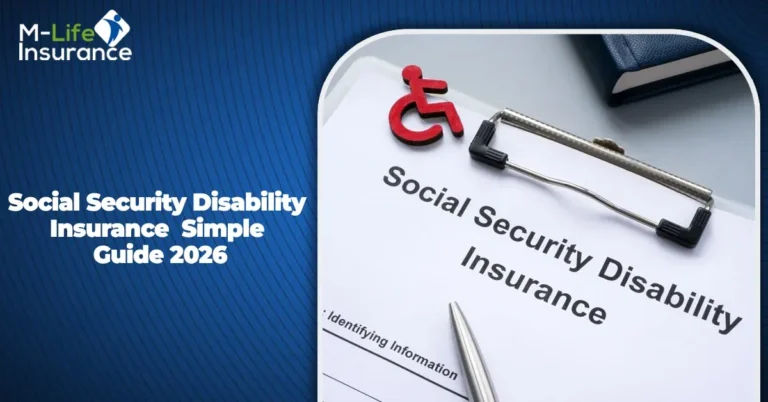Who pays for child health insurance after divorce? This question often arises when parents are going through the complex process of separation. Ensuring that your child remains covered is crucial for their well-being. Divorce brings many changes, and one significant concern is determining who is responsible for the health insurance of your child.
Don’t worry! This blog post will guide you through the factors that influence this decision, including legal considerations, custody arrangements, and financial responsibilities. By understanding these elements, you can make informed choices that prioritize your child’s health and avoid potential conflicts.
Let’s explore how you can tackle this critical aspect of post-divorce parenting effectively.
Who Pays for Child Health Insurance After Divorce?
After a divorce, the responsibility for providing health insurance for children typically falls on one or both parents, as determined by the divorce agreement or court order. In many cases, the parent who is providing the primary care for the child (known as the custodial parent) may be responsible for providing health insurance.
However, the non-custodial parent may also be required to contribute to the cost of health insurance and other medical expenses for the child as part of the child support agreement. The specifics can vary based on the laws of the state where the divorce is taking place and the details of the divorce agreement.
It’s important for parents to understand their obligations regarding health insurance and to comply with any court orders or agreements to ensure the well-being of their children.
What are the Legal Considerations for Child Health Insurance After Divorce?
Legal considerations for child health insurance after divorce can vary depending on the jurisdiction and the specifics of the divorce agreement. However, some common legal considerations include:
1- Health Insurance Coverage
The divorce agreement or court order will typically specify which parent is responsible for providing health insurance for the children. This may include coverage through an employer-sponsored plan, a government program like Medicaid or CHIP, or a private insurance plan.
2- Cost Sharing
The agreement may also outline how the costs of health insurance premiums, deductibles, and copayments will be shared between the parents. In some cases, one parent may be required to cover the full cost, while in others, the cost may be shared based on each parent’s income or other factors.
3- Enforcement
If one parent fails to comply with the terms of the divorce agreement regarding health insurance, the other parent may seek enforcement through the court system. This could involve penalties for non-compliance or other legal remedies.
4- Changes in Circumstances
If there are significant changes in either parent’s circumstances, such as a change in employment or income, the health insurance arrangements may need to be revisited and modified through the court system.
5- Medicaid and CHIP
In cases where one or both parents are unable to afford private health insurance, children may be eligible for coverage through Medicaid or the Children’s Health Insurance Program (CHIP). These programs have specific eligibility requirements and may be considered as part of the overall health insurance plan for the children after divorce.
Parents need to work closely with their attorneys and follow the terms of their divorce agreement regarding child health insurance to ensure that their children’s health care needs are met.
Factors Influencing Responsibility
Several factors influence who pays for child health insurance after divorce:
- Employment and Income: The parent with better access to affordable, employer-sponsored health insurance may be responsible for providing coverage. Income levels can also impact this decision.
- Custody Arrangements: Custody arrangements play a role, with the parent having primary custody often being responsible for providing health insurance. However, in joint custody situations, both parents might share the costs.
- Existing Coverage: If the child is already covered under a parent’s health insurance plan before the divorce, the court may prefer to maintain this coverage to avoid disruptions in care.
- State Laws: State laws vary regarding child support and health insurance responsibilities after a divorce. Some states may have specific requirements for parents to provide health insurance for their children.
- Financial Responsibilities: Besides premiums, parents must consider other costs like deductibles, co-pays, and medication expenses. Parents may need to negotiate how these costs are shared or reimbursed.
Financial Responsibilities for Child Health Insurance
After a divorce, financial responsibilities for child health insurance can vary based on several factors:
1- Premiums
One parent may be responsible for paying the premiums for the child’s health insurance. This responsibility is often determined by the court or through negotiation between the parents.
2- Out-of-Pocket Costs
Both parents may share responsibility for out-of-pocket costs, such as co-pays, deductibles, and medications. A clear agreement should outline how these costs are divided.
3- Reimbursement and Contribution
In some cases, one parent may pay the premiums, while the other parent reimburses a portion of these costs. This arrangement ensures that both parents share the financial burden of health insurance.
How Much Does Life Isurance Cost?
4- Financial Capacity
The financial situation of each parent is a crucial factor. The court may consider each parent’s income and ability to pay for health insurance when determining financial responsibilities.
5- Agreements and Court Orders
Any agreements or court orders regarding child support and health insurance should be followed. Failure to comply with these agreements or orders can result in legal consequences.
Parents need to understand their financial responsibilities regarding child health insurance after a divorce to ensure that their child receives the necessary coverage.
Types of Health Insurance Plans For Children After Divorce
Several types of health insurance plans are available for children after a divorce:
1- Employer-Sponsored Insurance
This type of insurance is provided by an employer and often offers comprehensive coverage at a lower cost compared to private plans. If one parent has access to quality employer-sponsored insurance, it may be the preferred option.
2- Private Health Insurance
Private insurance plans are purchased directly from insurance companies or through the healthcare marketplace. While they may offer more flexibility in terms of coverage options and providers, they can be more expensive than employer-sponsored plans.
3- Medicaid
Medicaid is a government program that provides free or low-cost health coverage to low-income individuals and families. Children from eligible households can receive comprehensive medical care through Medicaid.
3- Children’s Health Insurance Program (CHIP)
CHIP is designed for families who earn too much to qualify for Medicaid but cannot afford private insurance. It offers affordable coverage for children, including routine check-ups, immunizations, and hospital visits.
5- COBRA
The Consolidated Omnibus Budget Reconciliation Act (COBRA) allows children to continue receiving coverage under a parent’s employer-sponsored plan for a limited period after a divorce. However, COBRA coverage can be costly as the individual is responsible for paying the entire premium.
Understanding the different types of health insurance plans available can help parents choose the best option to ensure their child’s health needs are met after a divorce.
Alternative Options for Child Health Insurance
Are you looking for suitable child health insurance after a divorce? Well! With a lot of options available in the market, don’t forget to check out some alternative options. Some of them are discussed here:
-
State Health Insurance Programs
Many states offer health insurance programs specifically for children, such as Medicaid and the Children’s Health Insurance Program (CHIP). These programs provide comprehensive coverage at little to no cost for eligible families.
-
Parent’s Insurance Coverage
Depending on the divorce agreement, children may remain covered under one parent’s health insurance plan. This option can provide continuity of care and may be more cost-effective than purchasing separate insurance.
-
Marketplace Plan
Parents can explore health insurance options through the Health Insurance Marketplace. These plans offer a range of coverage levels and pricing options, and financial assistance may be available based on income.
-
Short-Term Health Insurance
Short-term health insurance plans provide temporary coverage for specific periods, which can be beneficial during transitional periods after a divorce. However, these plans may have limited coverage and higher out-of-pocket costs.
-
Health Savings Accounts (HSAs) and Flexible Spending Accounts (FSAs)
Parents can use HSAs or FSAs to cover eligible medical expenses for their children, including premiums, deductibles, and co-pays. Contributions to these accounts are tax-deductible and can help offset healthcare costs.
Exploring these alternative options can help parents find the most suitable and affordable health insurance coverage for their children after a divorce.
Practical Tips for Parents After Divorce
Looking for child health insurance after a divorce can be complex, but these practical tips can help parents manage the process effectively:
- Open Communication: Maintain open and honest communication with your ex-spouse about health insurance arrangements. Discussing concerns and agreeing on a plan can prevent misunderstandings and conflicts.
- Update Insurance Information: Ensure that your child’s health insurance information is updated to reflect changes in custody and living arrangements. This includes updating contact details and providing new insurance cards to healthcare providers.
- Keep Detailed Records: Keep detailed records of health insurance payments, medical expenses, and reimbursements. These records can help you track expenses and provide evidence in case of disputes.
- Explore All Options: Consider all available health insurance options for your child, including Medicaid, CHIP, and COBRA coverage. Compare costs and coverage to find the best option for your family.
- Seek Legal Advice: If you’re unsure about your rights and responsibilities regarding child health insurance after a divorce, seek advice from a family law attorney. They can provide guidance based on your specific situation and ensure that you comply with legal requirements.
By following these practical tips, parents can navigate the complexities of child health insurance after a divorce and ensure that their child’s health needs are met.
Conclusion
Deciding who pays for child health insurance after divorce involves multiple factors, including legal considerations, financial responsibilities, and practical arrangements. By understanding these elements and maintaining open communication, parents can ensure that their child receives the necessary health coverage. Working together, even post-divorce, is key to securing the child’s well-being and avoiding disputes.
Frequently Asked Questions (FAQs)
1- Who pays for child health insurance while a custody case is pending?
The responsibility for child health insurance during a custody case depends on court orders or agreements. Generally, both parents may continue providing coverage, with one maintaining the existing insurance until a final decision is reached.
2- How much am I expected to pay for child health insurance?
The amount varies based on income, insurance plan costs, and legal agreements. Typically, the parent providing insurance covers the premium, but the other parent may contribute based on court orders or agreements.
3- Does child support include health insurance?
Child support often encompasses health insurance costs, but specifics depend on jurisdiction and circumstances. Generally, the providing parent includes insurance premiums in the child support calculation, ensuring comprehensive care for the child.
References:
https://www.ourfamilywizard.com/blog/childrens-healthcare-after-divorce
https://www.thetxattorneys.com/blog/who-pays-child-health-insurance-divorce-texas
https://www.sdfamilylaw.com/blog/which-parent-covers-a-childs-health-insurance/

Joyce Espinoza, Expert Life Insurance Agent
Joyce Espinoza is a trusted life insurance agent at mLifeInsurance.com. She’s been in the insurance industry for over ten years, helping people, especially those with special health conditions to find the right coverage. At MLife Insurance, Joyce writes easy-to-understand articles that help readers make smart choices about life insurance. Previously, she worked directly with clients at Mlife Insurance, advising nearly 3,000 of them on life insurance options.





